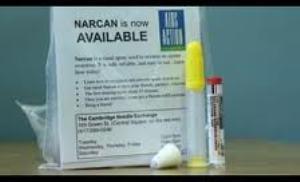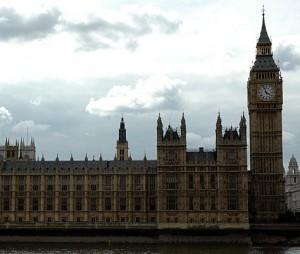The FBI's annual Uniform Crime Report finds that drug arrests are stabilizing, but at near record levels. More than 1.6 million people got busted for drugs last year, more than half of them for pot.
Britain's Liberal Democrats, junior partners in a coalition government with the Tories, have passed a resolution calling for decriminalization of drug possession, regulated marijuana sales, and more.
Do you read Drug War Chronicle? If so, we need your feedback to evaluate our work and make the case for Drug War Chronicle to funders. We need donations too.
A Missouri technical college's plan to force students to take suspicionless drug tests is on hold after the ACLU of Eastern Missouri filed suit and won a temporary restraining order.
Caught in a glaring lie about drug use among South Carolina job seekers, Gov. Nikki Haley is forced to concede she was full of it.
Washington's I-502 legalization initiative has picked up the support of the state's Democratic Party.
Recent Washington state marijuana legalization polls have produced varying results. What does that mean for I-502?
Massachusetts has reversed a thousand drug overdoses since it began its Narcan pilot program in 2007.
More cartel drug busts, more dead bodies, no apparent impact on the flow of drugs north and cash south.
Two more drug war deaths this week, and these ones were bizarre.
An Oklahoma police chief gets caught with meth and weed, a New Mexico cop goes to prison for blowing up an FBI investigation, and a Colorado deputy is being looked at for some missing evidence money.
Events and quotes of note from this week's drug policy events of years past.
The Colorado Alliance for Marijuana Reform has an immediate opening for an Executive Director in its Denver office. This is a new position, designed to take advantage of current opportunities to promote marijuana policy reform in Colorado via ballot measures, legislative advocacy, and public education.
More than 1.6 million people were arrested for drug offenses in the US last year, according to the FBI's Uniform Crime Report 2010, and more than half of them were for marijuana. That's a drug arrest every 19 seconds, 24 hours a day, every day last year. The numbers suggest that despite "no more war on drugs" rhetoric emanating from Washington, the drug war juggernaut is rolling along on cruise control.
Overall, 1,638,846 were arrested on drug charges in 2010, up very slightly from the 1,633,582 arrested in 2009. But while the number of drug arrests appears to be stabilizing, they are stabilizing at historically high levels. Overall drug arrests are up 8.3% from a decade ago.
Marijuana arrests last year stood at 853,838, down very slightly from 2009's 858,408. But for the second year in a row, pot busts accounted for more arrests than all other drugs combined, constituting 52% of all drug arrests in 2010. Nearly eight million people have been arrested on pot charges since 2000.
The vast majority (88%) off marijuana arrests were for simple possession, with more than three-quarters of a million (750,591) busted in small-time arrests. Another 103,247 people were charged with sale or manufacture, a category that includes everything from massive marijuana smuggling operations to persons growing a single plant in their bedroom closets.
The stabilization of drug arrests at record high levels comes as the FBI reports all other categories of crime are dropping. Violent crime was down overall, with murder decreasing by 4.2% and robberies by 10.0%, while property crime was also down overall, with burglary and larceny declining by more than 2% and motor vehicle theft and arson down by more than 7%.
Drug arrests were the single largest category of arrests, accounting for more than 10% of all arrests in the country. They were followed by drunk driving arrests (1.41 million) and larceny arrests (1.27 million). More than three times as many people were arrested for drugs than for all violent crimes combined (552,000) and nearly as many as for all property crimes combined (1.643 million).
African-Americans continue to be arrested for drug offenses in disproportionate numbers. Blacks accounted for 31.8% of all drug arrests last year, while according to the
US Census Bureau, they constitute only 12.6% of the national population.
[Visit the Drug War Facts Crime section for updated tables presenting arrest data from 1980 through the present.]
The high drug arrest numbers were grist for the mill for drug war critics.
"This shows that, contrary to what Obama and
Kerlikowske say, the war on drugs is not over," said Bill Piper, national affairs director for the
Drug Policy Alliance. While conceding that the vast majority of drug arrests are conducted by state and local law enforcement, "the Obama administration sets the tone," he argued. "
Kerlikowske said he ended the war on drugs—not the
federal war on drugs—but federal money absolutely subsidizes state and local drug arrests by funding programs like the Byrne Justice Assistance Grant program and the COPS program. They are supposed to be setting national policy, but they're not doing a very good job of leading by example."
"Since the declaration of the 'war on drugs' 40 years ago we've arrested tens of millions of people in an effort to reduce drug use," noted Neill Franklin, a retired Baltimore narcotics cop who now heads the group
Law Enforcement Against Prohibition (LEAP). "The fact that cops had to spend time arresting another 1.6 million of our fellow citizens last year shows that it simply hasn't worked. In the current economy we simply cannot afford to keep arresting three people every minute in the failed 'war on drugs. If we legalized and taxed drugs, we could not only create new revenue in addition to the money we'd save from ending the cruel policy of arresting users, but we'd make society safer by bankrupting the cartels and gangs who control the currently illegal marketplace."
While national drug reform groups had harsh words for the policies leading to the overall drug arrest figures, marijuana reformers were equally critical when it came to the herb and the arrests it generates.
"Today, as in past years, the so-called 'drug war' remains fueled by the arrests of minor marijuana possession offenders, a disproportionate percentage of whom are ethnic minorities," said
NORML deputy director Paul
Armentano. "It makes no sense to continue to waste law
enforcements' time and taxpayers' dollars to arrest and prosecute Americans for their use of a substance that poses far fewer health risks than alcohol or tobacco."
"It's pretty obvious that we continue to spend billions a year arresting nearly a million people for marijuana related crime, yet use had not fallen dramatically," said Morgan Fox, communications director for the
Marijuana Policy Project. "That shows that this is just a waste of time and money. It's really disingenuous for the Obama administration and the drug czar to say they are concentrating on public health measures and harm reduction and moving away from law enforcement, and then release numbers that show that was not the case, that the arrest rates are staying the same."
Fox noted that pot arrests accounted for 5.7% of all arrests nationwide. "If the drug czar says we can't arrest our way out of the drug problem, then why are we spending one-twentieth of our law enforcement resources arresting people for nonviolent, victimless crimes?" he asked. "We could be using those resources for solving rapes and murders."
More than a decade of drug reform efforts have managed to slow what once seemed to be endless annual increases in drug arrests in the US, but stabilizing at around 1.6 million drug busts a year is not victory, only the first step in putting the brakes on the drug war juggernaut. Now, it's time to start concentrating on bringing it to a screeching halt.
back to top
Members of Britain's Liberal Democratic Party overwhelmingly adopted a resolution Sunday supporting the decriminalization of drug possession and the regulated distribution of marijuana and calling for an "impact assessment" of the 1971 Misuse of Drugs Act that would provide a venue for considering decriminalization and controlled marijuana sales.
The resolution calls for an independent panel "to properly evaluate, economically and scientifically, the present legal framework for dealing with drugs in the United Kingdom." Citing the Portuguese decriminalization model, the resolution called for consideration of reforms so that "possession of any controlled drug for personal use would not be a criminal offense" or that "possession would be prohibited but should cause police officers to issue citations for individuals to appear before panels tasked with determining appropriate education, health or social interventions."
The resolution also calls for the review to consider "alternative, potential frameworks for a strictly controlled and regulated cannabis market and the potential impacts of such regulation on organized crime, and the health and safety of the public, especially children."
The resolution includes a call for "widespread provision of the highest quality evidence-based medical, psychological and social services for those affected by drugs problems," including the widespread use of heroin maintenance clinics for hard-core addicts.
The resolution also offers support for the Advisory Council on the Misuse of Drugs (
ACMD), whose scientific integrity has been under attack first by the former Labor government, which resulted in a number of high profile resignations, and then by the Conservatives, who have put forth a plan to no longer require a certain number of scientists to sit on the council. The council should "retain a majority of independent scientific and social scientific experts in its membership," and no changes to the drug laws should take place without its advice, the resolution said.
The Liberal Democrats are the junior partner in Britain's coalition government, having brokered a deal with Conservatives after the last parliamentary elections. The resolution will put the party in conflict with the Conservatives, who are opposed to any liberalization of Britain's drug laws.
It also puts them at odds with Labor, which after a brief dalliance with downgrading marijuana offenses in 2004, overrode the advice of the
ACMD to restore the old, harsher penalties the following year. The Liberal Democrats can continue to boast of having the most progressive drug policy position of any of Britain's major parties.
The resolution was introduced by Ewan
Hoyle, delegate from Glasgow South and founder of Liberal Democrats for Drug Policy Reform. Politicians have tip-toed around drug policy reform because of "cowardice, pure cowardice," he said. Instead of panicking over what the tabloids might say,
Hoyle added, "It's time politicians looked voters in the eye and attempted to explain complex concepts. I want [Liberal Democratic leader] Nick Clegg to walk into [Prime Minister] David Cameron's office and say: 'This is part of what is needed to get the country out of a hole.'"
While most party
front-benchers stayed out of the debate, MP Tom Brake, co-chair of the Home Affairs Parliamentary Party Committee, congratulated delegates on passage of the resolution.
"Today, Liberal Democrats reaffirmed our support for an evidenced based drugs policy, calling for an independent panel to review current drug laws," Brake said after passage. "We want to ensure the Government has a clear focus on prevention and reducing harm by investing in education, treatment and rehabilitation, and moving away from criminalizing individuals and vulnerable drug users. We need proper regulation and investment if we are to get to the root of the battle with drugs. Liberal Democrats are the only party prepared to debate these issues."
The Conservatives were quick to go on the attack. The resolution "sends out the message that taking drugs is okay, but it is not," Tory MP Charles Walker told the tabloid
Daily Mail. "If the Liberal Democrats think taking heroin, cocaine and smoking skunk is okay, then that is up to them, but the government and I think most people in Britain do not agree with them."
While Labor continues to back away from drug reform, at least one Labor MP congratulated the Liberal Democrats on the resolution.
"The resolution passed should be acceptable to all but the most prejudiced MPs," said MP Paul Flynn, a long-time supporter of drug law reform. "But what next? Will someone take the campaign forward in Parliament?" he asked. "I've tried several times with bills and debates. I still have the scars to prove it. But, contrary to popular belief, advocating the end of drug prohibition is not an electoral liability. If it was I would have been rejected by the voters twenty years ago. This is an era when there is respect for strongly held independent views that challenge accepted foolishness."
Flynn could not resist a chance to jab at Prime Minister Cameron -- who supported drug legalization before he opposed it -- and the Liberal Democrats as well.
"An additional reason why drugs reform may be successful is that we have a Prime Minister who understands the argument," Flynn noted. "He wrote a great column in 2002 setting out the alternatives. The vote was practically unanimous this afternoon. Will the Lib
Dems have the
cojones to implement their conference policy?"
It may not be just a matter of
cojones, but also of numbers, said Steve
Rolles of the
Transform Drug Policy Institute.
"This is Liberal Democratic policy only, and they are the minority partner in the coalition government," he noted. "They have had a pretty strong drug policy position for years, but the problem has been that it has been a shield issue for them rather than a sword issue. They have not wanted to take the lead on it because the leadership sees it as a potential liability rather than a strength. They have made the intellectual journey, but are afraid to commit on the political side."
But now the Liberal Democrats have passed their resolution, even if party leader Nick Clegg has been noticeably silent on the issue, and that puts the issue squarely before the public again. That's a good thing, said
Rolles.
"The Tories will certainly need to respond, and will be made to look trenchant, anti-evidence, and dogmatic as a result," the analyst said. "Labor may move slightly, but I think they are biding their time to see what the public reaction will be. All the parties know that drug policy reform must happen at some point, but none want to move on it until they are more confident it will play well politically," he said.
"This pushes the debate into the political mainstream, which is always helpful, not least because it provides cover for others to take a public position on reform,"
Rolles continued. "We know that exposure to informed debate on this issue tends to move opinion in a positive direction so that is also a positive. This isn't a seismic moment but it is another step in the right direction. Undermining the creaking edifice of prohibition is an attritional process."
The Liberal Democratic Party has had its say on drug policy reform this past weekend. Now, the question is how the party leadership responds and whether Labor and the Conservatives can be moved on the issue. It looks like the drug debate is heating up again in Britain.
back to top
Dear reformer:
Thank you for helping StoptheDrugWar.org publish 700 issues of Drug War Chronicle!
If you value the service that Drug War Chronicle and StoptheDrugWar.org provide, I hope you'll consider supporting us in one or both of two ways:
- We are in between newsletter grants, and that makes our need for individual donations more important right now -- Drug War Chronicle is free to read but not to produce! Click here to make a donation by credit card or PayPal, or to print out a form to send in by mail.
- Please send quotes and reports on how you put our flow of information to work, for use in upcoming grant proposals and letters to funders or potential funders. Do you use StoptheDrugWar.org as a source for public speaking? For letters to the editor? Helping you talk to friends or associates about the issue? Research? Personal edification? Have you changed your mind about any aspects of drug policy since subscribing, or inspired you to get involved in the cause? Do you reprint or repost portions of our bulletins on other lists or in other newsletters? Do you have any criticisms or complaints, or suggestions? We want to hear those too. Please send your responses -- one or two sentences would be fine; more is great, too -- by email [email protected] or reply to a Chronicle email or use our online comment form. Please let us know if we may reprint your comments, and if so, if we may include your name or if you wish to remain anonymous. IMPORTANT: Even if you have given us this kind of feedback before, we could use your updated feedback now too -- we need to hear from you!
If you prefer to donate by mail, you can send your check or money order to: DRCNet, P.O. Box 18402, Washington, DC 20036. Make your check payable to DRCNet Foundation to make a tax-deductible donation for Drug War Chronicle -- remember if you select one of our member premium gifts that will reduce the portion of your donation that is tax-deductible -- or make a non-deductible donation for our lobbying work -- online or check payable to Drug Reform Coordination Network, same address. We can also accept contributions of stock -- email [email protected] for the necessary info.
Again, thank you for helping us reach this milestone, and for joining us today to celebrate it -- a brighter future lies ahead, with your help.
Sincerely,

David Borden, Executive Director
StoptheDrugWar.org
Washington, DC
http://stopthedrugwar.org
back to top
A Missouri technical college's plan to force incoming students to undergo suspicionless drug testing is on hold after the ACLU of Eastern Missouri successfully sought a temporary injunction in federal court in St. Louis on September 14. With assistance from Students for Sensible Drug Policy, the group has filed a lawsuit on behalf of six Linn State Technical College students to challenge the constitutionality of the drug tests.

Linn State Technical College
Federal courts consider a drug test to be a search under the Fourth Amendment and have allowed only limited exceptions to the amendment's requirement that searches need a warrant based on reasonable suspicion. Those drug testing exceptions include people working in jobs that impact the public safety (truck drivers, airline pilots), police involved in drug law enforcement, and minor students who participate in high school athletic or other extracurricular activities.
Linn State administrators implemented the
drug testing program this fall. It requires all first-year students and some returning students to be screened -- at their own expense -- for drugs, including marijuana, cocaine,
methamphetamines, and opiates.
Linn State admits in its drug testing FAQ that it does not believe "
LSTC has any greater student drug use issue than other colleges," but justifies the drug testing by saying it is preparing students for the real world. "Drug screening is becoming an increasingly important part of the world of work," the FAQ said. "It is also believed it will better provide a safe, healthy, and productive environment for everyone who learns and works at
LSTC by detecting, preventing, and deterring drug use and abuse among students."
The drug testing program at Linn State would be the first of its kind among public institutions of higher learning in the US. The ACLU is determined not to let that happen.
"It is unconstitutional to force students to submit to a drug test when there is zero indication of any kind of criminal activity," said Jason Williamson, staff attorney with the ACLU Criminal Law Reform Project. "The college has demonstrated no legitimate need to drug test its students that outweigh their constitutionally protected privacy rights. This is an unprecedented policy and nothing like it has ever been sanctioned by the courts."
"This is an invasive policy that requires people to submit to tests that reveal private and intimate things like medical conditions or whether they are pregnant that people have a right to protect, said Anthony
Rothert, legal director of the ACLU of Eastern Missouri. "A person's privacy should not be invaded like this, especially when they have done nothing wrong and when there's not even an allegation that they've done something wrong."
With the issuance of the temporary restraining order, the ACLU and the Linn State students it represents have won an initial victory. Now, they must convince the court in St. Louis that their temporary victory should be made permanent.
back to top
Last week, South Carolina Gov. Nikki Haley was caught falsely claiming high rates of positive drug tests among prospective workers at the Savannah River Site as she enthusiastically endorsed requiring people seeking unemployment compensation to pass drug tests. On Monday, though, the conservative Republican was forced to concede she couldn't back up her claims.

Nikki Haley (image via Wikimedia)
In an
interview with the Associated Press, Haley said she had repeated "a million times" without challenge her claim that "half" of workers applying for jobs at the Energy Department facility had failed drug tests, but that she had now learned her lesson and will be more careful in the future.
"I've never felt like I had to back up what people tell me. You assume that you're given good information," Haley said. "And now I'm learning through you guys that I have to be careful before I say something."
She told the AP she was frustrated by being unable to document claims that have shaped her policy perspectives, including the demand for drug tests to receive unemployment benefits. She said she had met with people at the Savannah River Site as she campaigned for governor.
"We were on the site. There were multiple people in there. And that comment that they made had a huge impact on me," Haley said. "It is the reason you're hearing me look into whether we can do drug testing. It's the reason you hear me focus so much on job training," Haley said. "Somebody can't say that and it not stick you in the gut."
Even as she backtracked, Haley tried to blame Savannah River Site personnel. "Now they're all backing off saying it. And they know they said it," Haley said. "But now they don't have the backup."
The Department of Energy said that less than 1% of workers hired there failed pre-employment drug tests. Faced with that glaring contradiction between her initial claims and reality, Haley said she was done with that talking point.
"I'm not going to say it anymore," she said. But she still supports drug testing of people seeking unemployment benefits.
back to top
The Washington state Democratic Central Committee Saturday endorsed a marijuana legalization initiative, throwing the party's weight behind the effort to put the measure on the ballot for the November 2012 election.

downtown Seattle
The Central Committee voted 75-43 for a
resolution supporting
Initiative 502, which would legalize the possession of marijuana by adults and allow for its sale through pot-only stores regulated by the state liquor control authority. Initiative sponsors
New Approach Washington estimate that marijuana legalization under its model would generate more than $200 a million a year in tax revenues, with more than half of that earmarked for public health programs.
The Democrats cited, among other things, law enforcement costs of marijuana prohibition and the revenues that could be gained with legalization. They noted that marijuana possession arrests, with mandatory 24-hour jail stays, accounted for half of all Washington drug arrests.
I-502 is controversial among some segments of the marijuana legalization and
medical marijuana communities because it also includes a per se driving under the influence provision. The initiative sets a blood THC level of 5
nanograms per
millileter above which drivers are presumed to be impaired, but some activists argue that such a provision will result in the arrest and conviction of pot-accustomed drivers who are not actually impaired.
That didn't seem to bother the Democratic Central Committee too much, though. The committee included that provision in its long list of "
whereases" in support of the initiative, noting that "this per se limit will not apply to the non-psychoactive marijuana metabolite
carboxy-THC that can appear in blood or urine tests for days or even weeks after last use."
I-502 is supported by the ACLU of Washington, whose Alison Holcomb has taken a leave of absence to spearhead the campaign, and has been endorsed by prominent Washington figures, including former US Attorney John McKay (the man who prosecuted Marc Emery, ironically), Seattle City Attorney Pete Holmes, and travel writer and TV show host Rick
Steves.
Organizers have until next July to gather 241,000 valid signatures to qualify for the ballot. But I-502 is an initiative to the legislature, meaning that if it passes the signature-gathering hurdle, it would then go before the state legislature in the upcoming session. If the legislature refuses to act, the initiative would then go before the voters in November 2012.
back to top
Washington state voters are evenly divided on the question of marijuana legalization, according to a poll released Monday. The Strategies 360 Washington Voter Survey found that of likely voters surveyed, 46% supported pot legalization and 46% opposed it.
The poll comes as advocates organized as
New Approach Washington are in the midst of a signature-gathering campaign to place a legalization initiative,
I-502, on the November 2012 general election ballot.
Polls conducted earlier this year did better. In July, an Elway poll had 30% "definitely supporting" legalization, with another 24% "inclined to support, but need[ing] to know more" -- a possible majority, but within the poll's +/- 5% margin of error. In January, as lawmakers considered bills that would decriminalize or legalize pot, KING5/SurveyUSA poll had 56% of respondents saying they thought legalization was a good idea, with 54% saying they thought lawmakers should allow marijuana to be sold at state-run liquor stores with the proceeds taxed.
The conventional wisdom among initiative campaign veterans is that a measure should start out polling at 60% or more to have a likelihood of breaking 50% on Election Day. For I-502 to start at 60%, its specific wording and title will have to win over some voters who responded negatively to these more general polls. Its ability to do so may in turn influence funders' willingness to support it. On the flip side, there is more than a year to go, and pro-legalization polling has continued to increase in most recent years.
In the current poll, marijuana legalization had its highest level of support among 2008 Obama voters (60%), Democrats or leaning Democratic (59%), independents (56%), King County and North Puget Sound residents (54%), and non-whites (51%).
The strongest opposition to legalization came from Republican and Republican leaning voters and 2008 McCain supporters (69%), Eastern Washington residents (59%), women (54%), and Western Washington residents (excluding King County and North Puget Sound) (52%).
The poll was conducted via telephone on September 11 through 14. It surveyed 500 Washington state residents who indicated they were likely to vote in the November 2012 election and included 400 who indicated they were likely to vote in the November 2011 election. The margin of error was +/- 4.4% for the 500-person sample and greater for subsamples.
back to top
State officials in Massachusetts announced Tuesday that the state's pilot Narcon (naloxone) pilot program has marked the 1,000th overdose reversal since the program was introduced in 2007. The program is part of a broader effort undertaken by the Department of Public Health, its Bureau of Substance Abuse Services and its Bureau of Infectious Disease Control to reduce fatal and non-fatal opiate overdoses.

Narcan is saving lives in Massachusetts. (image courtesy Cambridge OPEN)
is an
opioid antagonist that blocks the effects of
opioids, such as heroin,
oxycodone,
hydrocodone,
fentanyl, codeine and methadone. The pilot programs teach people how to use
Narcan, including
opioid users and trusted people in their lives, such as family, friends and staff of human services programs. The
Narcan pilot sites also provide education on overdose prevention and referrals to treatment. The Department of Public Health reported that more than 10,000 people are now enrolled in the pilot program, including drug users, friends, and family members.
"Too many families have been impacted by the rise in opiate abuse and overdoses in Massachusetts," said Lieutenant Governor Timothy Murray, Chair of the Interagency Council on Substance Abuse and Prevention. "As we continue to combat opiate abuse and provide resources for prevention and treatment services,
Narcan has proven to be a powerful tool in saving lives, so that opiate abusers can receive treatment and begin to recover from their addiction."
"Massachusetts is a national leader in
opioid overdose prevention," said Secretary of Health and Human Services
JudyAnn Bigby, MD. "By using community-based programs to enroll participants and distribute Intra-nasal
Narcan, this pilot has allowed us to reach
opioid users and bystanders in communities across the state."
Intra-nasal
Narcan is available at pilot sites located in 12 Massachusetts cities, including Boston,
Brockton, Cambridge, Fall River, Gloucester,
Hyannis, Lynn, New Bedford, Northampton,
Provincetown, Quincy and Springfield. The pilot sites provide education on overdose prevention, recognition and response to opiate users and family and friends of opiate users, along with referrals to treatment. Click
here to learn more.
back to top
by Bernd Debusmann Jr.
Mexican drug trafficking organizations make billions each year smuggling drugs into the United States, profiting enormously from the prohibitionist drug policies of the US government. Since Mexican president Felipe Calderon took office in December 2006 and called the armed forces into the fight against the so-called cartels, prohibition-related violence has killed around 40,000 people, including more than 15,000 last year. The increasing militarization of the drug war and the arrest or killing of dozens of high-profile drug traffickers have failed to stem the flow of drugs -- or the violence -- whatsoever. The Merida initiative, which provides $1.4 billion over three years for the US to assist the Mexican government with training, equipment and intelligence, has so far failed to make a difference. Here are a few of the latest developments in Mexico's drug war:
Thursday, September 15
In Philadelphia,
authorities announced the dismantling of a drug trafficking network with ties to the
Sinaloa Cartel. In total, five people were arrested, three of them in Pennsylvania and two in Texas. Ten kilos of cocaine, cash and weapons were also confiscated.
In
Matamoros,
fire fights and blockades were reported in several parts of the city, effectively shutting the city down. Residents posted pictures of hijacked
buses parked across streets and city officials confirmed that incidents occurred on the highway to
Reynosa. It is unclear whether any fatalities occurred during the incidents.
Wednesday, September 16
In
Ciudad Victoria,
Tamaulipas,
a car bomb exploded during Mexican Independence Day celebrations. No injuries were reported.
In
Querandaro,
Michoacan,
Independence Day celebrations were canceled after a group of 40 heavily armed gunmen arrived in the town’s main square and ordered the crowd to disperse or be attacked, causing people to flee in panic or hide inside government buildings. No injuries were reported.
Saturday, September 17
In
Huamuxtitlan, Guerrero
, the body of a missing federal congressman and his driver were found in a river. PRI congressman
Moises Villanueva had been missing since September 4
th, when the two men disappeared after leaving a party held by a fellow party member. Mexican media reported that both men had been shot and appear to have been dead for some time.
In the Monterrey suburb of Santa
Catarina,
authorities announced that 44 police officers have been taken into custody on suspicion of working as lookouts for and protecting the
Zetas. At least 69 others are still under investigation.
Sunday, September 18
In Mexico City,
a high-ranking Sinaloa Cartel leader was arrested. Jose Carlos Moreno Flores is thought to have been the head of the
Sinaloa Cartel in
Chilapancingo, Guerrero, and is known to have had ties to drug traffickers in Guatemala and Costa Rica. He is also thought to have played a key part in turf wars fought over
Chilpancingo between the
Sinaloa Cartel and rival groups.
Monday, September 19
In Veracruz
, 32 prison inmates escaped from three facilities in simultaneous jail breaks. 14 of the inmates have already been recaptured and the Mexican military has deployed to search for the remaining 18. All 17 prisons in Veracruz are being checked to ascertain whether any other prisoners are missing.
Tuesday, September 20
In
Michoacan,
the army captured a high-ranking member of the Knights Templar Organization. Saul Solis Solis, 49, is a former police chief and at one time was a congressional candidate for the Green Party, finishing fourth in the 2009 congressional race for his home district. He is also suspected of being heavily involved in narcotics cultivation and meth production, as well as in multiple attacks on federal forces, including a May 2007 attack that killed an officer and four soldiers.
In Veracruz, the
bodies of 35 people were dumped on a busy street near a shopping center by a group of heavily armed gunmen who pointed weapons at passing motorists. According to Mexican media sources, most of the gunmen were identified as having criminal records and links to organized crime groups. A banner left with the bodies claimed that the dead were
Zetas. Some of the victims had their heads covered with black plastic bags and appeared to have been tortured. One of the bodies has been identified as a police officer who went missing two weeks ago.
In
Ciudad Juarez,
at least eight people were murdered in several incidents across the city. In one incident, three teenagers were walking along a street when they were intercepted by a group of gunmen, who killed two and severely wounded the third. In another incident, a 32-year old mother of 8 was shot dead outside her home.
[Editor's Note: We can no longer accurately enumerate the number of deaths in the Mexican drug wars this year. The Mexico City newspaper El Universal had been running a tally on which we relied, but it stopped. Our estimate for this year's death toll is just that -- an estimate.]
Total Body Count for 2007 (
approx.): 4,300
Total Body Count for 2008 (
approx.): 5,400
Total Body Count for 2009 (
approx.): 9,600
Total Body Count for 2010 (official): 15,273
Total Body Count for 2011: (
approx.): 7,200
Mexico
back to top
[Editor's Note: Drug War Chronicle is trying to track every death directly attributable to domestic drug law enforcement during the year. We can use your help. If you come across a news account of a killing or death related to drug law enforcement, please send us an email at [email protected].]

The Las Vegas Metro Police K-9 unit is part of the state and federal Interdiction Team (Image: LVMPD)
In separate incidents this week, two more people have died during drug-related encounters with law enforcement. The two people, both as yet unnamed, become
the 36th and 37th persons to die during US domestic drug law enforcement operations so far this year.
In Las Vegas,
police reported that a man who had been caught transporting several pounds of methamphetamine was killed Tuesday night after he ran from police while handcuffed and jumped in front of a tractor-trailer truck on Interstate 15. He was killed instantly.
[Editor's note: The Las Vegas victim was later identified as Andrey Cordero Rojas, 29.The second victim has yet to be named.]
Police had found 12 pounds of meth they valued at $300,000 in a hidden compartment in the man's vehicle after he was pulled over by the Interdiction Team, a
multiagency task force composed of state and federal agents.
They said the man had been cooperating when he suddenly ran onto the highway's passing lane and stopped in front of the oncoming truck. "We're not sure what he was thinking," a police spokesman said.
In the second incident, in Chester, Pennsylvania,
police reported that an as yet unidentified 41-year-old Delaware County man who ingested a "white chalk substance" after officers approached his car died of apparent cocaine poisoning.
Police said they were patrolling the neighborhood when they noticed "suspicious activity" in the car. The man in the car locked the doors, then began eating the substance and washing it down with "gulps" of water. He unlocked the doors after he was done ingesting the substance and was transported to a local hospital where he died.
back to top
An Oklahoma police chief gets caught with meth and weed, a New Mexico cop goes to prison for blowing up an FBI investigation, and a Colorado deputy is being looked at for some missing evidence money. Let's get to it:
In
Salpulpa, Oklahoma,
the Valley Brook police chief was arraigned on September 14 on drug trafficking and possession charges. Chief Melvin Fisher
Jr., 47, had been arrested on Labor Day after being pulled over in a "routine traffic stop" by the Oklahoma State Patrol. He is accused of possessing 20 grams of methamphetamine, an unknown quantity of marijuana, and drug paraphernalia. He is charged with drug trafficking, two charges of unlawful possession of a controlled drug with intent to distribute and one charge of unlawful possession of drug paraphernalia. The chief is out on $31,000 bail and has asked for a temporary leave of absence. He is set for a preliminary hearing on October 5.
In Albuquerque,
a former Albuquerque police officer was sentenced Tuesday to six months and a day in jail and six months on supervised release after being convicted of tipping off a friend who was the target of an ongoing federal narcotics and stolen merchandise investigation. Brad
Ahrenfield, 46, leaked details of an FBI scheme to bust one of his friend's employees for small-time drug dealing, then get the employee to flip on the friend, forcing the investigation to come to an end.
In Pueblo, Colorado,
the county's sheriff's deputy in charge of the evidence room has resigned in the midst of an investigation into missing cash. Tara
Adame resigned earlier this month and is a "person of interest" in the investigation, according to Sheriff Kirk Taylor. "A substantial amount of cash" is missing from the evidence room, although an exact total hasn't been released.
back to top
September 25, 1996: Mere days before Congress adjourns for the year, Rep. Newt Gingrich (R-GA) introduces H.R. 4170, the "Drug Importer Death Penalty Act of 1996." Within a few days, the bill attracts a coalition of 26 Republican cosponsors. The legislation demands either a life sentence or the death penalty for anyone caught bringing more than two ounces of marijuana into the United States. The bill itself dies a well-deserved death.
September 24, 1997: A federal grand jury in San Diego indicts Mexican cartel leader
Ramón Arellano Félix on charges of drug smuggling. The same day he is added to the FBI's 10 Most Wanted List.
September 28, 2001: Drug Enforcement Administration agents seize files containing legal and medical records of more than 5,000 medical marijuana patients associated with the California Medical Research Center in El Dorado County when they raid the home and office of Dr. Mollie Fry, a physician, and her husband, Dale Schafer, a lawyer who had earlier announced his bid for El Dorado County district attorney. Both Fry and Schafer were eventually convicted of marijuana offenses in federal court and sentenced to prison.
September 23, 2002: Mike and Valerie Corral's medical marijuana hospice near Santa Cruz, California, is raided just before dawn by federal agents. The Corrals are held at gunpoint while their co-op garden is destroyed.
September 26, 2002: In a move that eventually leads to a lawsuit alleging unlawful interference in an election, the Substance Abuse and Mental Health Services Administration (
SAMHSA) awards a $3,000,000 grant to the governor's office in Nevada during the time when US Drug Czar John Walters is attempting to build opposition to Nevada's ballot initiative, Question 9, which proposes amending the state constitution by making the possession of three ounces or less of marijuana legal for adults. (Only two other states are awarded large
SAMHSA grants at that time -- Michigan and Ohio, also facing drug reform initiatives.)
September 27, 2004: Struck by a drunk driver at four years old and paralyzed from the neck down, quadriplegic Jonathan
Magbie dies from inadequate medical care while serving a ten day sentence for marijuana possession in a Washington, DC jail.
back to top
The Colorado Alliance for Marijuana Reform has an immediate opening for an Executive Director in its Denver office. This is a new position, designed to take advantage of current opportunities to promote marijuana policy reform in Colorado via ballot measures, legislative advocacy, and public education.
Organization Overview:
The Colorado Alliance for Marijuana Reform (a 501(c)(4) social welfare lobbying organization) and the Colorado Alliance Marijuana Education Fund (a 501(c)(3) educational organization) were established in 2011. Their respective missions are to educate Coloradans about the benefits of ending marijuana prohibition and support legislative efforts, including a potential ballot initiative in 2012, to regulate marijuana like alcohol.
Position Description:
The Executive Director will serve at the will of the Colorado Alliance Executive Committee and work with it to oversee and implement the organization's strategic plan. Responsibilities will include, but are not limited to:
- Reporting regularly to the Alliance all metrics and progress toward the organizations' goals;
- Managing the organizations' budgets and cash flow;
- Hiring and management of consultants and staff necessary to execute the organization's strategic plan;
- Developing and implementing the fundraising plan for approved program budgets;
- Developing and managing a coalition structure to support organizational activities;
- Coordinating outside professional legal oversight of all organizational activities, including any legal actions regarding a ballot issue campaign;
- Managing external communication efforts; and
- Overseeing staff or contractors in complying with all federal, state, and local laws, rules, and requirements.
Qualifications:
The qualified candidate must have a minimum of 4 years of campaign or nonprofit management experience or 8-10 years of experience in political or non-profit advocacy.
The ideal candidate will have significant electoral and advocacy campaign experience and organizing skills. They must be a self-starter, willing to work long and irregular hours, and able to travel. Proficiency in Microsoft Office (Word, Excel, PowerPoint) and GoogleApps is essential. Experience using an online advocacy system (eg. Wired for Change, Salsa, Nationbuilder) and/or website content-management system (eg. Drupal or Joomla) are a plus, but not required.
Excellent writing and verbal communication skills are required, and the applicant should anticipate submitting a writing sample in the latter stages of the hiring process. Strong interpersonal skills and the ability to work in a team environment are critical, and ideal applicants will have experience in managing a diverse group of stakeholders.
Familiarity with marijuana policy is desirable; a commitment to marijuana policy reform principles is essential.
Compensation:
Salary is commensurate with experience. As a newly formed organization, benefits are limited. Any specific salary or benefit needs should be included in your cover letter.
Selection Process:
To apply, please email a copy of your resume, a cover letter with salary requirements and three relevant references to: [email protected].
All applications must be received 5:00pm MT on October 15, 2011 in order to be considered. The Colorado Alliance for Marijuana Reform is an Equal Opportunity Employer.
back to top











